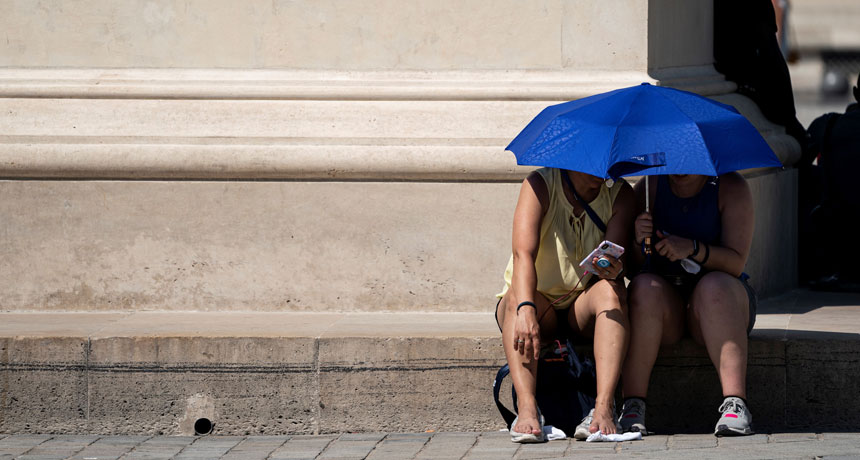The European Court of Human Rights (ECHR)’s recent ruling on Tuesday (April 9) in favour of more than 2,000 Swiss women, could see other governments soon face verdicts that would require them to improve their climate policies, legal experts said.
The association of Swiss women, known as KlimaSeniorinnen, argued their government had violated their human rights by taking insufficient action to address climate change, which exposed them to health risks and early mortality from heatwaves.
The ruling has direct implications for seven other climate cases that the ECHR had put on hold pending the April 9 ruling – and may have increased some of those cases’ chances of winning, owing to similarities with the Swiss women’s arguments, legal experts said.
Two of the pending cases, one brought by non-profits Greenpeace Nordic and Natur og Ungdom, and the other by the Norwegian Grandparents Climate Campaign (GCC), allege the Norwegian government has violated human rights by granting certain new oil exploration licenses in the Arctic. Fossil fuel emissions from oil, gas and coal are the top driver of climate change
“I think we have a quite similar build up of the case as the Klimaseniorinnen case, in the sense of that we’re both organisations and individuals that has taken this to the court. So, we’re very optimistic that we will get the goods processing in the human rights court,” said Natur og Ungdom (Nature and Youth) Chair, Gytis Blaževičius.
The Norwegian Supreme Court rejected the groups appeal to a lower court ruling in 2020. The groups then submitted their case to the ECHR in 2022, where it has been pending.
The court threw out another climate case on Tuesday brought by Portuguese youth against 32 governments because the claimants had not exhausted legal avenues first in Portugal.
Greenpeace legal counsel, Louise Fournier, said the court noting the importance of “intergenerational burden sharing” left it open for young applicants to bring forward other cases.
Norwegian Climate and Environment Minister Andreas Bjelland Eriksen said the government would read the court’s reasoning thoroughly to assess what the rulings mean for Norway.
(Reuters)














